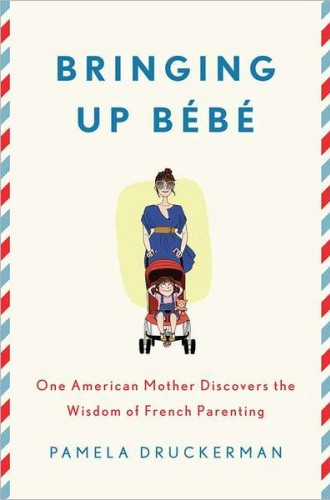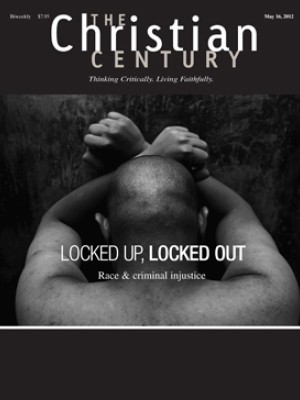Les enfants magnifiques
When my wife and I were expecting our first child, I confessed my anxiety about the blessed event and my new role to our octogenarian neighbor, the wise Katherine Beveridge: “Will I be a good father? I’m a little worried.” Katherine let out a kind and knowing chuckle and said to me, “Just trust yourself; you’ll be fine.” It wasn’t rocket science, but it was good, calming advice—much needed by parents in the United States.
Pamela Druckerman, an American writer living and raising kids in France, noticed that compared to most American parents, who hover over their children and protect them from every adversity, “French parents are achieving outcomes that create a whole different atmosphere for family life.”
Read our latest issue or browse back issues.
Take, for instance, rules about snacks and eating. French kids don’t snack all day. American parents can hardly imagine going anywhere without a bag of Goldfish, Cheerios, raisins or apple slices, as if starvation were imminent, but in France there is, by consensus, only one snack time. It happens at 4:30 p.m. It’s called the goûter (pronounced “gooh-tay,” according to Druckerman’s handy glossary). What this means is that when French kids sit down to eat, whether at home or in a restaurant, they are hungry. Druckerman observes, in her opening vignette, that “French children don’t throw food.” Eating out with their families, they eat and they talk. They are “cheerful, chatty and curious.”
Snacking only once a day means not only that kids are hungry when they sit down for dinner (where vegetables are served first), but also that they have learned to delay gratification and have developed self-control. Could this make French children “calmer and more resilient,” Druckerman wonders, “whereas middle-class American kids, who are in general more used to getting what they want right away, go to pieces under stress?”
American parenting patterns are fueled by the desire to give kids time and attention, to respond to their needs and wants, and to see that their young lives are as full of and enriched by activities as possible. The intentions are good. But the results? Kids need constant attention, expect a steady round of planned activities, and are short on internal resources. French parents, on the other hand, seem to think that it is a very good idea for their kids to spend some unstructured time alone each day.
The difference that emerges is the difference between American competitiveness and French calm. American parents of a certain socioeconomic class seem to see parenting as a competitive sport, with a Harvard or Stanford sticker on the car as the winner’s prize. We take pride in our kids acquiring skills early, whether it is reading at three, playing the violin at four or writing their first short story—for publication—at five. French parents tend to focus more on how kids operate in a group and on their ability to think and speak reasonably well.
Druckerman reports that the French have four magic words. To our two, please and thank you, they add bonjour (“hello,” or “good day”) and au revoir (“good-bye”), with which French children are expected to address all adults. It seems a small thing—saying hello and good-bye to adults—but it’s a way of getting kids out of themselves and noticing and appropriately acknowledging others. In a radio interview about her book, Druckerman said that this simple practice has a way of “rescuing a child from his or her own selfishness.”
Beneath the many contrasts that Druckerman draws is a deeper one, between a traditional society and a nontraditional and more individualistic one. Certain traditions—the 4:30 snack, the conventional greetings, and what Druckerman dubs La Pause (not jumping when children fuss)—are part of the taken-for-granted world in France. Americans, less traditional, tend to be making parenting up as they go along, with the help of an often contradictory array of experts purveying advice, methods and plans. Dependence on experts and their frequently changing advice, as opposed to reliance on shared practices and inherited wisdom, is both fueled by and produces American levels of anxiety.
Another difference is that parents in France seem to think of themselves as their children’s educators, though they may not put it that way. They are teaching their kids to be patient, to try different foods, to develop taste, to cope with time alone, to go to bed at a fixed time, and to acquire social graces, like appropriately acknowledging another human being. This is the parents’ job. Moreover, the assumption is that kids need formation. They don’t arrive socialized. It’s parents’ responsibility to socialize them. American parents, by contrast, seem to be less self-confident in their parental role and more likely to take their cues from the kids themselves.
There is a religious or theological dimension to all this as well. Increasingly Americans seem inclined to a spirituality or religion of individual specialness. It is the doctrine of the “god within” propagated by a range of popular figures, from Deepak Chopra to Eckhart Tolle and from Oprah to Elizabeth Gilbert, author of Eat, Pray, Love. For almost all of these popular writers, God’s job is to make us happy and fulfilled. We find God not in duties or obligations to one another or to God but by going within, there to discover our inner divinity. Such a theology encourages the idea that a child needs no limits, no structure, no formation or socialization. Children need only to discover, honor and worship the god within themselves.
Druckerman suggests that Jean-Jacques Rousseau has a significant influence on French parenting. On one hand, Rousseau was a great believer in allowing children freedom to be on their own. So on the French playground or in preschool, kids are pretty much left to entertain themselves. But there is another side to Rousseau’s teaching and influence: freedom has limits. Children are not to question whether the parent is in charge. “Do you know the surest means of making your child miserable?” asked Rousseau:
It is to accustom him to getting everything. Since his desires grow constantly due to the ease of satisfying them, sooner or later powerlessness will force you, in spite of yourself, to end up with a refusal. And this unaccustomed refusal will give him more torment than being deprived of what he desires.
Beneath Rousseau’s teaching also lies a notion of sin. Human beings, even or perhaps especially children, are a bundle of self-centered desires that require socialization and structure. The sooner they learn self-control, the better off they will be.
Druckerman’s penultimate chapter is titled “It’s Me Who Decides”—“Me” being the parent. And the final chapter is “Let Him Live His Life”—“Him” being the growing child. For the French these are not contradictory thoughts but parts of one whole.
When Druckerman took her daughter to a French pediatrician for her shots, she cradled the child in her arms and apologized for the pain she was about to experience. The pediatrician scolded Druckerman. “You don’t say ‘I’m sorry,’” he says. “Getting shots is part of life. There’s no reason to apologize for that.” Druckerman quotes Rousseau, “If by too much care you spare them every kind of discomfort, you are preparing great miseries for them.”
Druckerman encourages parents, as the French have encouraged her, to take on the parental role and responsibility with calm and confidence—both for the children’s sake and for their own.






